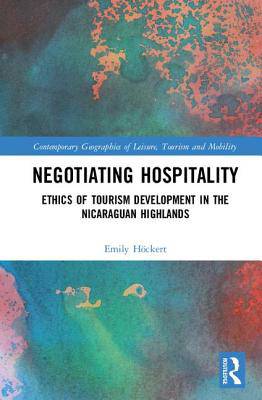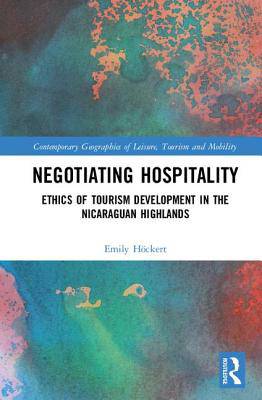
- Retrait gratuit dans votre magasin Club
- 7.000.000 titres dans notre catalogue
- Payer en toute sécurité
- Toujours un magasin près de chez vous
- Retrait gratuit dans votre magasin Club
- 7.000.000 titres dans notre catalogue
- Payer en toute sécurité
- Toujours un magasin près de chez vous
Description
How do hosts and guests welcome each other in responsible encounters? This book addresses the question in a longitudinal ethnographic study on tourism development in the coffee- cultivating communities in Nicaragua. The research follows the trail of development practitioners and researchers who travel with a desire to help, teach and study the local hosts. On a broader level, it is a journey exploring how the conditions of hospitality become negotiated between these actors. The theoretical approach bases itself on the ethical subjectivity as responsibility and receptivity towards 'the other'. The ideas put forward in the book suggest that hospitality, responsibility and participation all require a readiness to interrupt one's own ways of doing, knowing and being.
This book provides a conceptual tool to facilitate reflection on alternative ways of doing togetherness and will be of interest to students and researchers of hospitality, tourism, development studies, cultural studies and anthropology.
Spécifications
Parties prenantes
- Auteur(s) :
- Editeur:
Contenu
- Nombre de pages :
- 220
- Langue:
- Anglais
- Collection :
Caractéristiques
- EAN:
- 9781138551497
- Date de parution :
- 08-05-18
- Format:
- Livre relié
- Format numérique:
- Genaaid
- Dimensions :
- 156 mm x 233 mm
- Poids :
- 481 g







